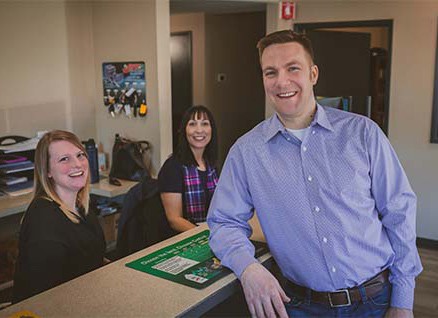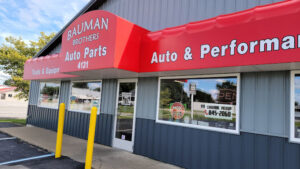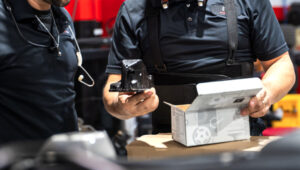Valley Automotive owner trims expenses and develops plan of action for additional cuts as need be from week to week
Covington, Wash.—Bryan Kelley, owner of Valley Automotive Repair & Electric in Covington, Wash., and ASA Northwest chairman, reports there’s been a lot of confusion and fear among shop owners as the coronavirus spreads in his state.
“There are a lot of unknowns. I’ve spent more time talking to the industry than I have working in my own business in the last two weeks,” he said. “There’s a black cloud hanging over the whole area right now and nobody quite knows what’s going to happen next.”
When Washington Gov. Jay Inslee placed a stay order, however, it provided some certainty as to what was coming and allowed shops and business to prepare, Kelley added.

“Now the question is — ‘What do we do for car count and paying the bills?’ I don’t think there’s anyway around it and we just have to ride this storm out. There’s no magic bullet to get the car count back. All we can do is make sure we take care of our customers and help them if they need a prescription filled or with grocery shopping — whatever it is that they need done.
“We might not be fixing their car today, but in 30-60 days from now when they do need service, then we’ll be there for them, too. Shops need to get out in front of their communities, whether it’s through Facebook, food banks, local rotary clubs or churches, so they know we’re here to help. It’s the right thing to do.”
In addition, Kelley said shops should immediately examine their P&Ls to see what can be cut back and find their bottom line.
“The first thing I looked at was my 12-month report with the assumption I’m going to lose up to 40 percent of my business right away, if not more. Then I started to remove expenses that aren’t necessary today and identified those that can be deferred.”
Monthly operating expenses at Valley Automotive traditionally run approximately $140,000-$150,000, but Kelley has determined he can bring that down to $80,000 if he has to and still pay the bills. Throughout the process, he had to decide at which point certain cuts were to be made before he addresses staffing.
“At the end of the day, employees are a huge expense and we have to balance that without emptying cash reserves and personal savings. We have a weekly target and if we don’t meet our goals, then everyone in the shop knows what the next cut will be. It helps to create some certainty in this time of uncertainty.”
Services that were eliminated included cleaning crews and a secondary bookkeeper who volunteered to take time off. Kelley’s marketing budget was also trimmed, such as mailers and high-cost marketing that wasn’t contractual.
“We do shop lunches every week and despite how much I hated to cut those out, I told the team how much they were and what it impacts cost-wise. Now we’re all bringing our own lunches — each nickel and dime adds up.”
He estimates the shop trimmed 45 percent before considering making employee structural cuts. The shop’s numbers for the first three weeks of March were above pace, though business dropped 35 percent in the last week.
It takes three cars per day for each of Valley Automotive’s four technicians for the shop to reach its goals. During Aftermarket Matters Weekly’s interview with Kelley, he said there were four cars in the shop.
“We can handle one bad week, but two bad weeks means we have to take action because we can’t afford to keep funding — those are our triggers at the moment. Batten down the hatches and if something doesn’t have to get paid today, then don’t pay it.”
What’s on the horizon
Kelley drew parallels and distinctions between the coronavirus crisis and the 2008 economic downturn.
“This is a lot different. It’s the same in the fact that we’ve had to start cutting back, but different because this has a finite timeline. In 2008, we didn’t know when we were going to resurface.”
A fellow shop owner in the eastern side of Washington had experienced the eruption of Mount St. Helens in 1981 when his entire town was covered in eight inches of ash, effectively shutting the town and his shop down.
“His income at the beginning went to nearly zero, but at the end of the six weeks business had taken off and he more than made up for his earlier losses. I think what’s happening now is a lot like that, and we’re going to accelerate back out of it.
“The demand will come back and shops need to be prepared to run with it. Make sure your internal processes are in order and employees are ready to return if you had to lay them off. Take advantage of this slow time to prepare for the opening of the gate.”










Comments are closed.